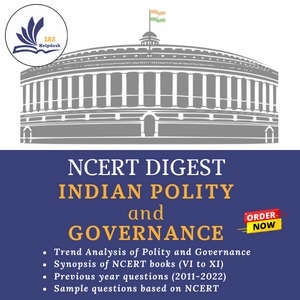Indus Water Treaty at 60: Why there is a need to give it a fresh look ??
Description
Indus Water Treaty at 60: why there is a need to give it a
fresh look
WHY IN NEWS?
September 19 marks the 60th anniversary of the Indus Water Treaty (IWT) between India and Pakistan, a treaty that is often cited as an example of the possibilities of peaceful coexistence that exist despite the troubled relationship. Well-wishers of the treaty often dub it “uninterrupted and uninterruptible”. The World Bank, which, as the third party, played a pivotal role in crafting the IWT, continues to take particular pride that the treaty functions.
CONTEXT
The
role of India, as a responsible upper riparian abiding by the provisions of the
treaty, has been remarkable but the country, of late, is under pressure to
rethink the extent to which it can remain committed to the provisions, as its
overall political relations with Pakistan becomes intractable.
BACKGROUND: Equitable water-sharing
·
Back in time, partitioning the Indus rivers system was
inevitable after the Partition of India in 1947.
·
The sharing formula devised after prolonged negotiations
sliced the Indus system into two halves.
·
The three ‘western rivers’ (Indus, Jhelum and Chenab) went to
Pakistan and the three ‘eastern rivers’ (Sutlej, Ravi and Beas) were portioned
to India. Equitable it may have seemed, but the fact remained that India
conceded 80.52 per cent of the aggregate water flows in the Indus system to
Pakistan.
·
It also gave Rs 83 crore in pounds sterling to Pakistan to
help build replacement canals from the western rivers. Such generosity is
unusual of an upper riparian.
·
India conceded its upper riparian position on the western
rivers for the complete rights on the eastern rivers. Water was critical for
India’s development plans.
·
It was vital, therefore, to get the waters of the ‘eastern
rivers’ for the proposed Rajasthan canal and the Bhakra Dam without which both
Punjab and Rajasthan would be left dry, severely hampering India’s food
production.
·
Jawaharlal Nehru, while inaugurating the Bhakra Canals in
1963, described it as “a gigantic achievement and a symbol of the nation’s
energy and enterprise”.
In
Pakistan, however, it was an occasion of strong resentment, grieving that India
got away with the total flow of 33 million acre-feet on the eastern rivers
“virtually for a song”.
Nehru
was always conscious that the Bhakra Canals should not be at the cost of
reduced water supplies to Pakistan. However, he was also very clear that
India’s interest on the eastern rivers should be protected hoping that the two
countries should someday come to live “amicably and cordially as the United
States and Canada live in North America”.
Increasing unease
That, of course, has not happened. On the contrary, the Pakistan leadership considers the sharing of the waters with India an unfinished business.
What is disputable
today?
·
It has nothing to do with water sharing, which is settled
under the IWT, but whether the Indian projects on the western rivers, in
particular Jhelum and Chenab, as Pakistan claims, conform to the technical
stipulations.
·
Being a lower riparian state, Pakistan’s scepticism of India
allows it to increasingly politicise the issue. It is not surprising that it
maintains high troop levels and alertness around the canals on the eastern
front, fearing that India will try to take control of the western rivers.
Clearly, due to its
strategic location and importance, the Indus basin continues to receive
considerable international attention. In fact, David Lilienthal, who headed the
Tennessee Valley Authority and later the Atomic Energy Commission, after
visiting India and Pakistan in 1951, feared that “another Korea is in the
making”, prompting the World Bank to mediate the water sharing arrangements.
· There is a clamour in India for abrogating the IWT as a
response to Pakistan’s cross-border terrorism and intransigence. Any attempt
towards this would require a number of politico-diplomatic and hydrological
factors to be determined as also a political consensus.
·
That the treaty has remained “uninterrupted” is because India
respects its signatory and values trans-boundary rivers as an important
connector in the region in terms of both diplomacy and economic prosperity.
·
There have been several instances of terror attacks — Indian
Parliament in 2001, Mumbai in 2008, and the incidents in Uri in 2016 and
Pulwama in 2019 — which could have prompted India, within the Vienna Convention
on the Law of Treaties, to withdraw from the IWT.

